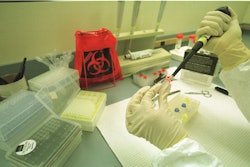The USDA announced a five-point food safety plan aimed to advance public health and modernize how FSIS protects the U.S. meat, poultry, and egg supply, according to a July 15 release.
The plan contains initiatives to help enhance foodborne illness prevention, strengthen inspection programs, and improve regulatory oversight, the USDA says.
1. Enhancing microbiological testing and oversight
To support enhanced Listeria monocytogenes testing efforts, FSIS is opening a modernized Midwestern Laboratory in Normandy, Mo. The facility plans to play to a critical role in analyzing verification samples for foodborne pathogens and support efforts to streamline the FSIS laboratory system.
2. Equipping FSIS inspectors with updated training equipment and tools
The USDA says FSIS implemented a new weekly questionnaire in 2025 to help frontline inspectors collect data on Listeria monocytogenes-related risk factors at ready-to-eat (RTE) establishments. To complement this, FSIS continues to enhance instructions and training to help inspectors recognize and elevate problems with an establishment’s food safety systems.
3. A practical approach to reduce Salmonella illness
USDA Secretary of Agriculture Brooke L. Rollins has asked FSIS to find a more effective and achievable approach to address the issue of Salmonella in in poultry products, the release notes. A reformed strategy brought forth by the Trump administration aims to protect public health while preventing excessive regulatory overreach. The strategy will begin with stakeholder listening sessions to collaborate on best approaches.
4. Strengthening state partnerships
In May, Secretary Rollins announced $14.5 million in funding to reimburse states for their meat and poultry inspection programs and called on Congress for more sustainable funding for these programs going forward. The USDA further notes that Rollins also signed a Memorandum of Understanding with the National Association of State Departments of Agriculture to improve collaboration between the USDA and states.
Moreover, FSIS reportedly signed updated, comprehensive cooperative agreements with the 29 states that operate state meat and poultry programs. The agreements clarify expectations for oversight and enforcement of food safety laws, provide comprehensive training for inspectors, and ensure regular coordination with FSIS.
5. Empowering FSIS inspectors to act and drive compliance
Finally, the USDA says FSIS is exercising its enforcement authorities and issuing notices of intended enforcement or suspending operations at establishments to address recurring noncompliance and ensure safe food production. In addition, FSIS has instructed its field supervisors to perform in-person, follow-up visits when systemic issues are identified during a Food Safety Assessment. The USDA says the visits bolster oversight to ensure an establishment fully addresses issues identified during a Food Safety Assessment and may inform enforcement action by FSIS.




















